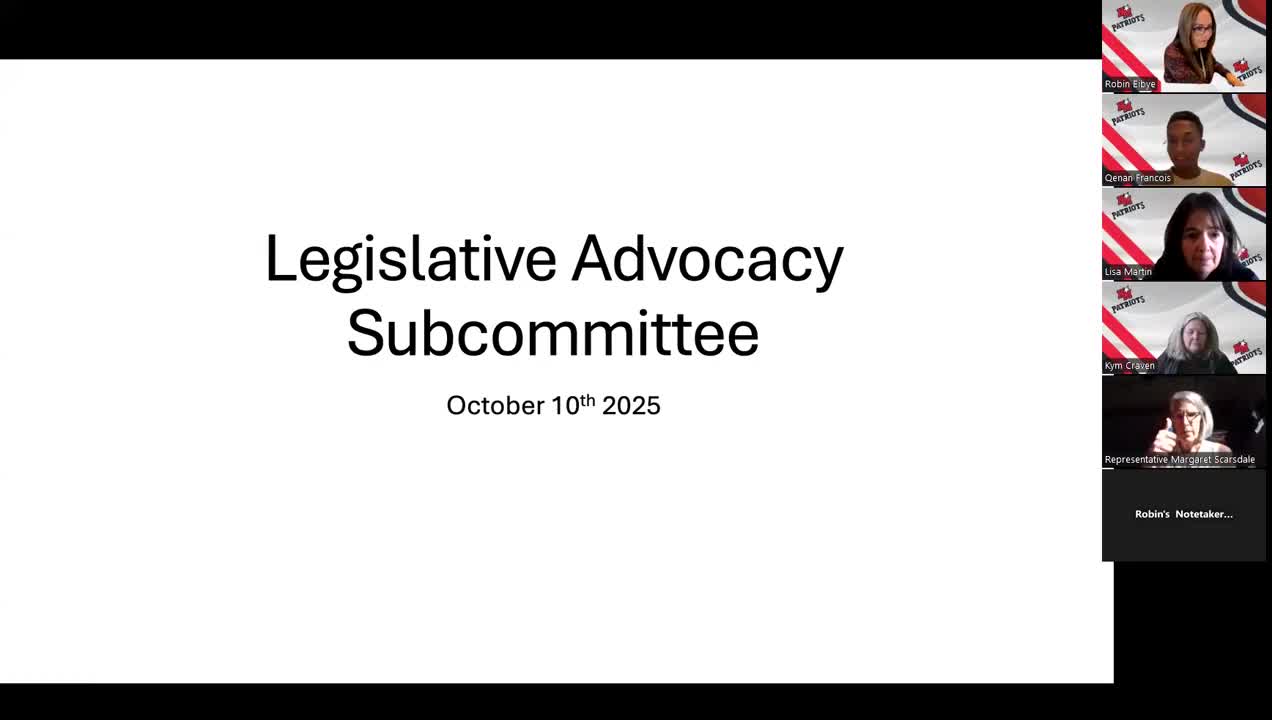North Middlesex subcommittee reviews options to ease school transportation funding shortfall
Get AI-powered insights, summaries, and transcripts
Subscribe
Summary
The North Middlesex Regional School Committee legislative and fiscal subcommittee met Oct. 10 to review district transportation funding and possible legislative fixes after years of variable state reimbursements left recurring gaps in the district budget.
NORTH MIDDLESEX REGION — The North Middlesex Regional School Committee legislative and fiscal subcommittee met Oct. 10 in a virtual session to review district transportation funding and explore legislative options to reduce local budget pressure.
Keenan, a subcommittee member who presented the analysis, summarized state policy and district data and said Massachusetts requires regional school districts to provide yellow‑bus transportation for all students and that, in principle, the Commonwealth is supposed to fully reimburse those costs. He presented five years of Department of Elementary and Secondary Education (DESE) data (snapshot taken Oct. 1) showing swings in entitlement and reimbursement rates and said the district has faced gaps “between $50,000 to $150,000” in recent years when actual reimbursements lag entitlement figures.
The presentation summarized two filed bills — H.697 and S.328 — that Keenan said are identical and would direct DESE to include a request to fund 100% of the Commonwealth’s obligation for regional transportation in its annual ask to the Legislature. Those bills were described as having been heard June 3 by the Joint Committee on Education; committee members present referenced testimony from local superintendents at that hearing.
Keenan outlined four possible policy or program responses the district could pursue with legislative partners: permitting regional districts to charge bus fees (a practice currently barred by law), establishing a family mileage‑reimbursement program to pay parents who opt out of bus service, creating a hybrid reimbursement structure that reimburses very low‑capacity runs at a higher rate, and changing the statutory seating requirement so districts need not provide seats to every student regardless of proximity. The presenter noted these options are not mutually exclusive and that each would require legislative changes or DESE rule changes to implement.
The subcommittee reviewed district operational data showing 17 of 63 morning runs were under 25% capacity on Oct. 1. Keenan said many buses run well below maximum capacity but cannot be eliminated without lengthening routes and delaying student arrival times. Using local examples, he modeled a family reimbursement option: at an illustrative $0.30 per mile reimbursement, a family driving 8 miles per day for 180 days would receive about $432 annually; at higher mileage rates (near the self‑employed/standard business rates discussed in the presentation) that figure could rise toward $1,000 per family. By comparison, Keenan said the annual cost of a single bus is about $84,000.
Committee members raised technical and policy questions. One member asked Keenan to double‑check the DESE reimbursement lines; Keenan said the slides used DESE figures and that supplemental budget adjustments may not be reflected in the Oct. 1 snapshot. Members also discussed practical limits to consolidating routes, the two‑week lead time required when families opt into or out of bus service, pedestrian safety and sidewalk availability in some towns, and the limited supply and pricing structure of smaller (20‑seat) buses in the district’s bid form.
A recurring theme in discussion was the lack of competition in the local vendor market. Members and Representative Scarsdale described DBus (the district’s primary contractor) as having a de facto monopoly across many towns, making price negotiation difficult. Margaret (committee member) summarized outreach after the Joint Education hearing and proposed regional negotiation blocs or state‑level negotiation to increase leverage. The group agreed the district cannot cost‑effectively bring transportation entirely in‑house for its size.
Representative Scarsdale and other attendees discussed the advocacy timeline and next steps: a district forum is scheduled for Nov. 20 and the subcommittee will aim to propose one or two concrete legislative asks by early November so the full committee and the representative can pursue them during the FY27 budget cycle. Representative Scarsdale said she would circulate a post‑hearing letter summarizing prior conversations and that the House and Senate chairs had expressed interest in alternatives, though chairs and staff require vetted proposals from the committee.
Operational follow‑up items included surveying families on low‑ridership routes to gauge interest in reimbursement or opt‑out programs, asking Superintendent Brad Morgan for additional bidding details, and exploring regional negotiation with nearby districts. The subcommittee agreed Kim Craven would draft proposed motion language giving the subcommittee latitude to develop and present legislative options; subcommittee members planned to place that motion on the full school‑committee agenda for approval.
No formal legislative action was taken at the meeting. The only formal vote recorded was a unanimous motion to adjourn, which passed on a voice vote.
The subcommittee identified next meeting dates and procedural steps: an October 21 subcommittee meeting and a November full school‑committee meeting were noted as opportunities to finalize a recommendation.
